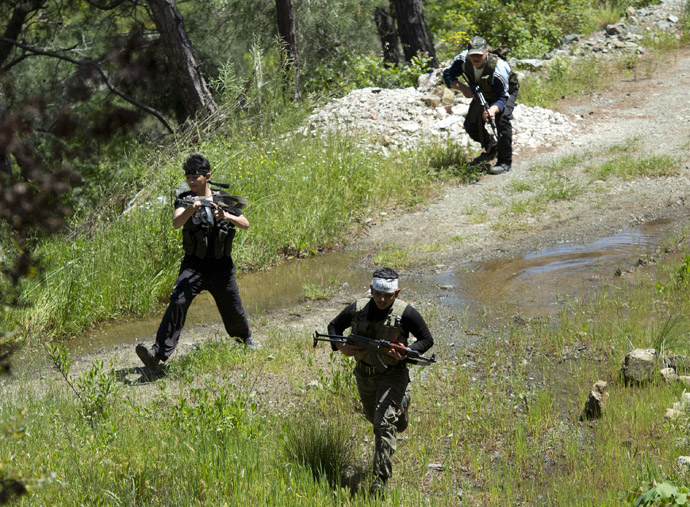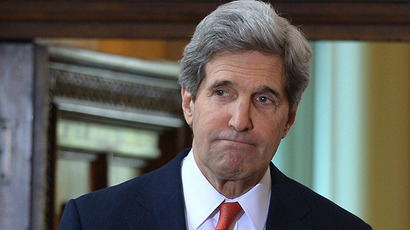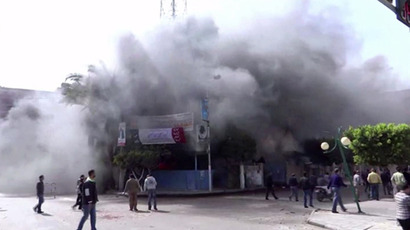US aims to arm Syrian rebels as Kerry seeks political support in Russia
With the introduction of a bill to directly arm the Syrian rebels, US politicians are pushing hard for an intervention in the Syrian conflict. US Secretary of State John Kerry is in Moscow for talks; brokering peace in Syria is high on his agenda.
The draft scheduled to be taken up in committee next week was introduced by Chairman of the Foreign Relations Committee Senator Robert Menendez. It seeks for the US to supply arms, military training and non-lethal aid to the opposition. The legislature also seeks to create a $250 million fund to aid the transition process in the country. The bill also aims to give Washington the power to impose sanctions on individuals involved in arms or oil transfers to Syria.
A loud opponent of President Assad, Menendez has been one of the greatest advocates for US involvement in Syria. Following the recent allegations of the use of chemical weapons Menendez said in a written statement, “The Assad regime has crossed a red line that forces us to consider all options,” The senator added “The greatest humanitarian crisis in the world is unfolding in and around Syria, and the U.S. must play a role in tipping the scales toward opposition groups and working to build a free Syria.”

The Obama administration had previously stressed that the use of chemical weapons constituted a “red line,” for US intervention in the conflict.
But recent intelligence assessment into the allegations is still yet inconclusive for US president to issue a military response.
Russia has strongly opposed military intervention in Syria, and has criticized Western support for the rebels. The Russian Foreign Ministry has maintained that escalations in armed confrontation would sharply increase the risks that new hotbeds of tension would appear not only in Syria but also in Lebanon and at the Israel-Lebanon border.
US 'skeptical' over chemical weapons claim
White House spokesman Jay Carney on Monday stated that the administration is “highly skeptical” of the comments made by a leading United Nations investigator, Carla del Ponte who claimed she was “stupefied” by the victims’ stories of the Syrian conflict that made her conclude that a “strong, concrete suspicions but not yet incontrovertible proof” exists that it was the rebels not the government forces that used sarin gas.
“During our investigation into crimes against humanity and war crimes, we collect some witness testimony that made to appear that some chemical weapons were used, in particular nerving gas. And what appeared to our investigation is that it was used by the opponents, by the rebels,” Carla del Ponte, from the UN Independent Commission of Inquiry on Syria, has told RT.
Furthermore, UN investigator argues, “we had no indication at all that the government, authority of the Syrian government used chemical weapons.”
But the White House remains adamant that it is President Assad who is a fault. “We are highly sceptical of any suggestions that the opposition used chemical weapons,” said White House spokesman Jay Carney. “We think it highly likely that Assad regime was responsible but we have to be sure about the facts before we make any decisions about a response.”
Politicians opposed to arming the rebels constantly warn that arms could end up in the wrong hands such as the Nusra Front.
Menendez’ bill says that only those who pass through a vetting process and meet standards on human rights, terrorism and non proliferation would be allowed to receive such US aid.
The bill before becoming a law needs to be approved by both the Senate and House of Representatives, and signed by President.














